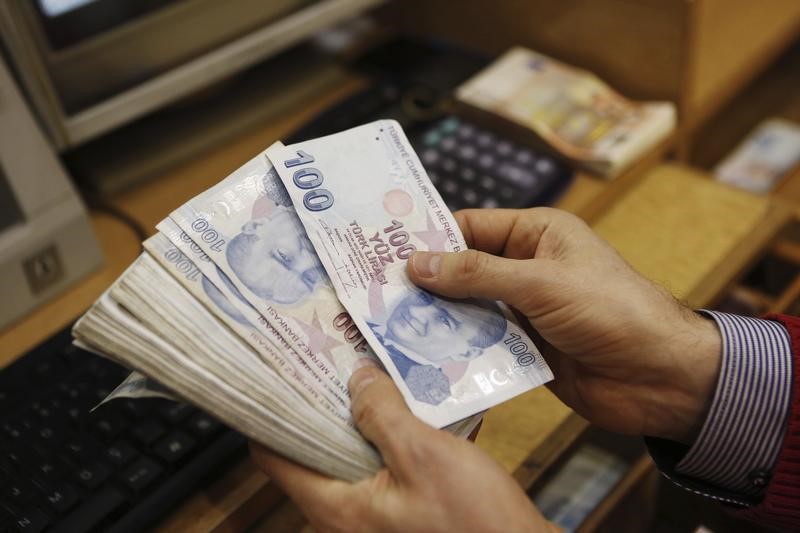* Turkish lira climbs more than 2 pct vs dollar at one point
* Yen slips broadly as safe haven demand wanes
* New Zealand dollar falls after soft CPI data
By Masayuki Kitano
SINGAPORE, July 18 (Reuters) - The Turkish lira rose against the dollar and the safe-haven yen fell broadly on Monday after Turkish authorities thwarted a coup attempt over the weekend, easing investor concerns about political uncertainty and geopolitical risks.
The Turkish lira recovered some of the losses suffered on Friday when it slid nearly 5 percent as news of the coup attempt spooked investors.
In early Asian trade on Monday, the lira rose by as much as 2.2 percent against the dollar at one point and last traded at 2.9700 TRYTOM=D3 , up roughly 1.7 percent on the day.
Turkish authorities rounded up nearly 3,000 suspected military plotters on Saturday and ordered thousands of judges to be detained after thwarting a coup by rebels using tanks and attack helicopters to try to topple President Tayyip Erdogan. yen sagged as investor risk aversion eased. The dollar rose 0.5 percent to 105.49 yen JPY= , while the euro gained 0.8 percent to 116.63 yen EURJPY=R . Against the dollar, the euro was up 0.2 percent at $1.1056 EUR= .
The yen is regarded as a safe haven currency partly because of Japan's net creditor status. As a result, the yen tends to rise in times of market stress, but often comes under pressure when investor risk appetite improves.
The dollar will probably take a breather in the near term, in the wake of its sharp rally against the yen last week, said Satoshi Okagawa, senior global markets analyst for Sumitomo Mitsui Banking Corporation in Singapore.
"I think the yen might edge higher. I don't expect the dollar to fall below 100 yen, but it will probably have a hard time rising above 107 yen and will probably be a bit heavy," Okagawa said about the outlook for dollar/yen this week.
The yen had slid more than 4 percent against the dollar last week for its worst weekly performance since late 2009, pressured by speculation that Japan might adopt more aggressive economic stimulus measures, namely "helicopter money" handouts to residents to encourage spending.
While analysts are sceptical that Japanese authorities would actually resort to such measures, the chatter about more aggressive stimulus has put added focus on whether the BOJ will unveil more monetary easing at its policy meeting in late July.
The New Zealand dollar slid 0.7 percent to $0.7073 NZD=D3 , coming under pressure after New Zealand's consumer price index rose less than expected in the second quarter.
